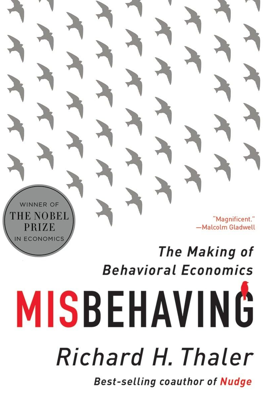The Debate Begins
The First Major Public Debate on Behavioral Economics
In October 1985, a pivotal conference was held at the University of Chicago, orchestrated by psychologists and economists from the university's Graduate School of Business. The event pitted staunch defenders of traditional economics against proponents of behavioral economics, essentially putting the credibility of behavioral insights on trial in a notoriously rationalist stronghold.
Herb Simon, Amos Tversky, Danny Kahneman, and Kenneth Arrow were among the behavioral economists presenting arguments for integrating psychological principles into economic theories. Their rationalist counterparts included notable figures like Robert Lucas and Merton Miller, representing the Chicago School's perspective.
Key Arguments Presented by Behavioral Economists: - Amos Tversky introduced the now-famous Asian disease problem, challenging the consistency of rational decision-making. This problem demonstrated how people choose differently between mathematically equivalent options based on how choices are framed, revealing pervasive cognitive biases. - Kenneth Arrow argued that optimization (rationality) was neither necessary nor sufficient for developing robust economic theories, advocating for the inclusion of observed irrational behaviors in economic models.
Challenges from Traditional Economists
Traditional economists at the conference were skeptical of concepts like fairness and systematic deviations from rational behavior highlighted by behavioral economists. They questioned the relevance and seriousness of integrating such psychological nuances into economic theory, viewing them as minor quirks in otherwise rational systems.
Significant Outcomes and Insights
Despite the strong defenses from traditional economists, the arguments for behavioral economics highlighted significant flaws in the assumptions underlying classical economic theories: - Kenneth Arrow dismissed the absolute necessity of rationality in economic theorizing, suggesting that more complex, behavior-based models could provide better insights into actual human behaviors. - Merton Miller's paper, despite its critical tone, inadvertently supported behavioral viewpoints by discussing the empirical anomalies related to corporate dividend payouts, which did not align with rational economic predictions.
Broader Implications and Continuing Debate
The conference didn't conclude with a definitive victory for either side but underscored the growing importance and influence of behavioral perspectives in economics. It marked the beginning of a more rigorous, empirical examination of economic theories, considering human psychology and real-world behaviors.
This watershed event set the stage for ongoing debates and gradual shifts in economic research paradigms, challenging economists to refine their models to better reflect the complexities of human decision-making. The dialogue between traditional and behavioral economists highlighted at the conference continues to evolve, pushing the boundaries of economic science toward a more comprehensive understanding of the market and individual behaviors.
